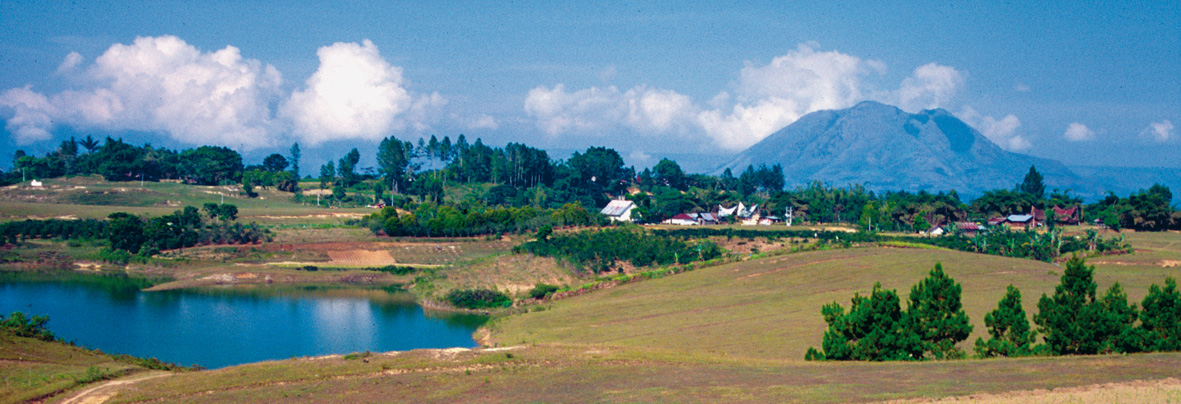Bius, parbaringin and paniaran. On democracy and religion among the Tobabatak, North-Sumatra
Orig: Bius, parbaringin und paniaran. Über Demokratie und Religion bei den Tobabatak Nordsumatras
This investigation is an attempt to gain a better understanding of the religious and socio-political organization of pre-colonial Tobabatak society.
In literature the traditionally stateless Tobabatak society is usually depicted as being organized principally along kinship lines and there is still a widespread perception that in pre-colonial times there were no more highly developed political units than villages. Fieldwork, archival research, and research into old Tobabatak texts have produced a different picture.
Tobabatak society did indeed never transform into statehood (in the sense of having a centralized government with the military power to enforce its decisions) but it had a functional alternative at its disposal: The many genuinely democratically organized ‘house-organizations’ (bius) of which the society consisted, each composed of thousands or even tens of thousands of members, were able to organize co-operation for the construction of irrigation-facilities and other communal projects (sometimes on a huge scale) and for the permanent infrastructure of hydraulic agriculture.
Within these house-organizations the parbaringin as spiritual as well as political representatives of the smaller units of society on the higher levels, and the paniaran as the representatives of the women played a leading role without ever using any military might.


